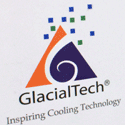Reviews:
- Unsung Heroes: 14 Years of Hard Drive Performance @ HotHardware
- MSI Afterburner V2.1 Beta 4 available to download at eTeknix.com @ eTeknix.com
- AMD desktop graphics roadmap analysis @ eTeknix.com
- ASUS Crosshair IV Formula AMD Motherboard Review @ HardOCP
- Cooler Master NotePal U3 Notebook Cooler Review @ ThinkComputers.org
News:
Consumer Watchdog To Call For Wi-Spy Hearing
SANTA MONICA, Ca – Consumer Watchdog today asked the House Energy and Commerce Committee to hold hearings into Google’s Wi-Spying because a ranking employee of the Internet giant gave testimony that contradicted known facts about the company’s massive privacy invasion.
In a letter to Rep. Henry Waxman, (D-CA) chairman of the House Energy and Commerce Committee and Rep. Joe Barton, (R-Tex) ranking member, the nonprofit, nonpartisan public interest group said a Congressional hearing is necessary even though the Federal Communications Commission said it is investigating.
“CEO Eric Schmidt and Alma Whitten, director of privacy for engineering and product management, should testify under oath to provide the America public with the answers it deserves,” wrote Jamie Court, Consumer Watchdog president and John M. Simpson, director of the group’s Inside Google project.
“The best venue to get a full explanation under oath of what happened and its implications for a company whose entire business is based on gathering information about its users, is a Congressional hearing,” the letter said. “Google has demonstrated a troubling pattern of changing its story in public statements as it has offered explanations of why it gathered private data from wireless networks. Moreover, it is clear that Whitten, who mentioned Google’s Wi-Spying in Congressional testimony this summer, gave a written statement that contradicted the facts.”
Read the letter here: http://insidegoogle.com/wp-content/uploads/2010/11/LtrWaxmanBarton111110.pdf
I knew we hadn’t heard the last of that.
Call of Duty: Black Ops review event, press gifts detailed
When you work for a gaming outlet with a large audience, Activision can make your life very good. The publisher has made a habit out of offering posh “review events” for the press instead of simply sending out early code. When the reviews arrive, few discuss the free vacation they were given.
“Two weeks before the game’s launch, I was flown from San Francisco to LAX; from there, I was driven to Santa Monica airport where I was given a flight helmet customized with my gamertag,” Tae Kim wrote about his experience reviewing the game. “I was then put into a helicopter and flown to Ojai, California, a small town about two hours north of Los Angeles. After landing in a field, I was driven to the Ojai Valley Inn and Spa, where I was given a posh suite to stay in for three days.” The suite had a 360, a copy of the game, and a nice 3D television hooked up to a surround-sound system.
Sounds like Activision rolled out the red carpet for some press. This is bad? Why do I have a hard time believing that the press would have given them bad press for not rolling out the red carpet. I’m up for a plane ride and vacation any time Activision calls.
Sugar and Slice make Graphene Real Nice
HOUSTON — (Nov. 11, 2010) — Future computers may run a little sweeter, thanks to a refinement in the manufacture of graphene at Rice University.
Rice researchers have learned to make pristine sheets of graphene, the one-atom-thick form of carbon, from plain table sugar and other carbon-based substances. They do so in a one-step process at temperatures low enough to make graphene easy to manufacture.
The lab of Rice chemist James Tour reported in the online version of the journal Nature this week that large-area, high-quality graphene can be grown from a number of carbon sources at temperatures as low as 800 degrees Celsius (1,472 F). As hot as that may seem, the difference between running a furnace at 800 and 1,000 degrees Celsius is significant, Tour said.
“At 800 degrees, the underlying silicon remains active for electronics, whereas at 1,000 degrees, it loses its critical dopants,” said Tour, Rice’s T.T. and W.F. Chao Chair in Chemistry as well as a professor of mechanical engineering and materials science and of computer science.
Seems that science is finally catching up with what gamers have known for years, that computational power increases with sugar.
